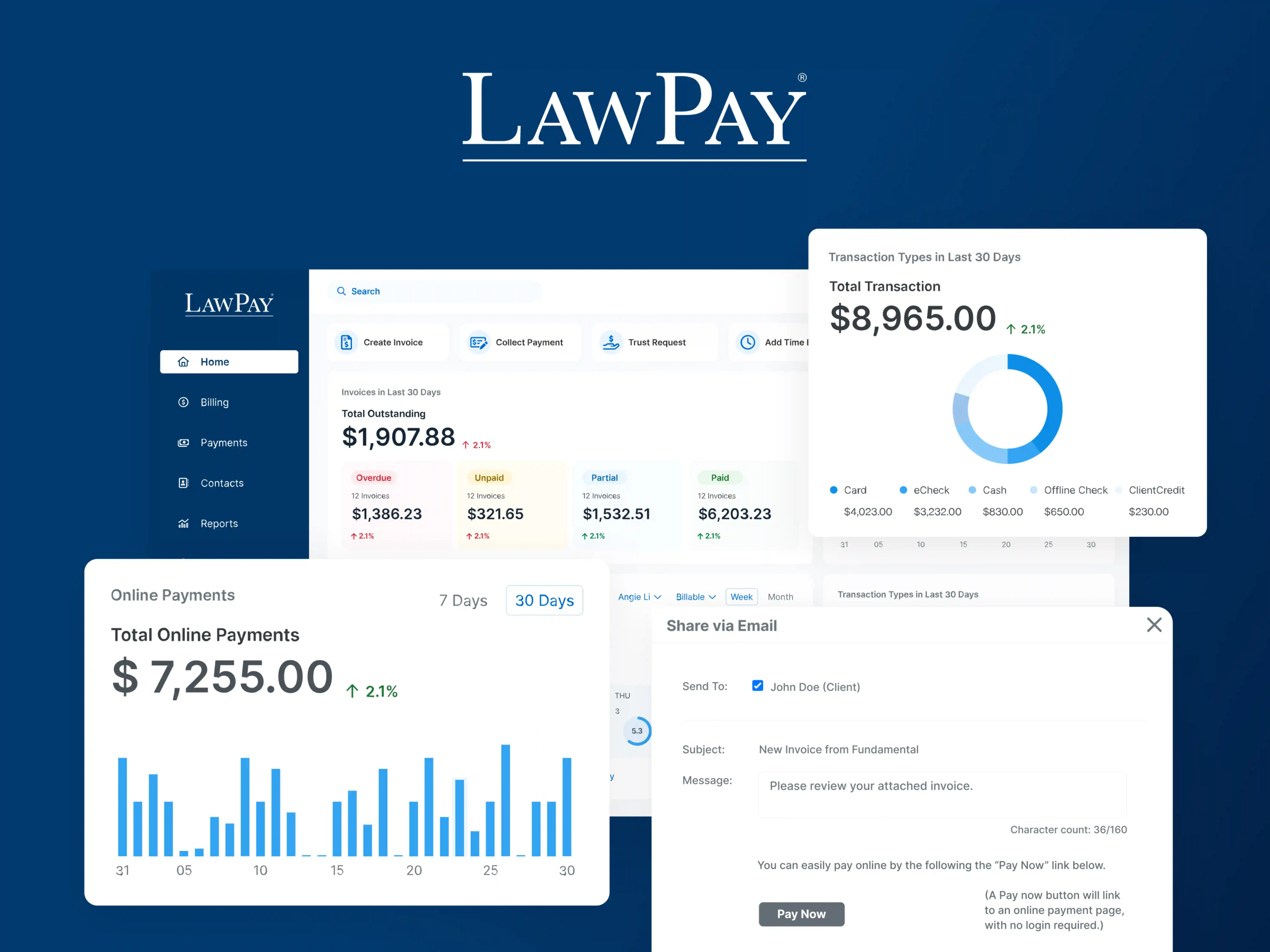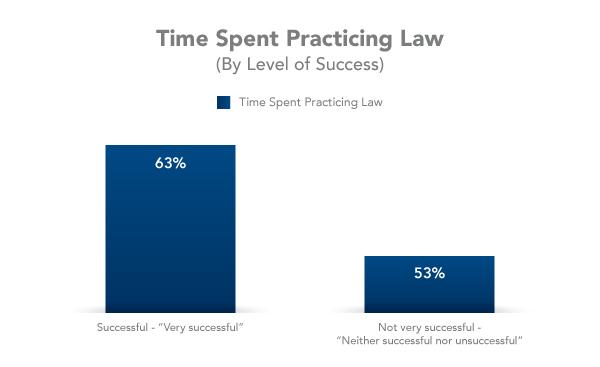Starting a solo practice is hard. It takes persistence, attention to detail, and a realistic, implementable business plan in order to succeed as a solo lawyer. As a sole practitioner, your time is valuable and wasted time adds up to wasted dollars.
Legal administration
Besides the work you are doing in the courtroom, there is always more work to be done in the office when you run your own solo practice. Between answering emails, scheduling consultations, processing billing, and document preparation, a solo attorney may find themselves overwhelmed by paperwork.
Schedule a demo to see what LawPay can offer your firm.
Book Now
The Thomson Reuter’s Solo and Small Law Firms Group recently completed a study asking attorneys about the most challenging aspects of their profession, and not surprisingly, time spent on non-billable, administrative tasks was at the top of the list. These types of tasks can include invoicing, phone answering, client intake paperwork, and payment processing.
Survey results concluded that 45 percent of all solo and small law firm time is spent handling administrative tasks. These results should be a wakeup call to solo practice attorneys. The 45 percent is even more shocking when you break down its impact on a firm’s profitability and bottom line. Take the breakdown below, for example:
40-hour work week x 45 percent of admin. time = 18 hours of unbilled work
18 non-billable hrs. x $150 hourly rate = $2,700 in potential billing lost weekly
$2,700 non-billable hrs./week x 48 weeks per year = $129,600 in potential revenue lost yearly
According to the study, when the firm’s own perception of success was accounted for, there was a large gap in reported time spent on administrative work. Of those describing themselves as “unsuccessful” up to the rating of “neither successful nor unsuccessful”, 31 percent reported that time spent on administrative tasks was a major challenge.
Conversely, only 10 percent and 14 percent of the firms that view themselves as “successful” to “very successful” reported challenges with administrative time management. The natural conclusion is that less successful attorneys lack time to collect billable hours and practice law due to operational and practice management tasks.

*2016, State of U.S. Small Law Firms Study, Thomson Reuters
A better way
Obviously, no firm can carry the high costs of inefficient administrative methods without seriously diminishing potential revenue. However, hiring a skilled assistant or paralegal is often out of the question due to the cost. As a solo attorney, finding a better way will be essential to your success. Luckily, there are solutions to make life easier for solo practice law firms and attorneys.
Schedule a demo to see what LawPay can offer your firm.
Book Now
Online payment solutions can streamline your cash flow and make it easier for your clients to pay your bills, letting them pay you instantly—which means no more waiting for checks to arrive in the mail. In fact, studies have shown that law firms get paid 39 percent faster when they accept online credit card payments.
To make it even easier, you can also set up recurring payments that will automatically charge your client’s card whenever your bill is due, letting you and your client focus on the case.
While hiring a paralegal may be outside of your budget, The Digital Age has also paved the way for affordable virtual assistance services. You could have a team of experienced assistants handling your calls and scheduling, performing data entry, preparing your documents and more—all without stepping foot in your office. With virtual assistance, you can keep your sights on the bigger picture items while the tedious tasks that eat up your day get taken care of by experienced, trained professionals.
The resources and amenities provided by LawPay and Officense are what every solo practice and small firm needs to beat the competition and reach their potential.
To learn more about how legal tech can help you save time and boost your bottom line, check out LawPay’s e-book, “Getting Paid in 2018: What Lawyers Need to Know.”
About the author
Noah Shumway
Noah Shumway is the Director of Sales and Marketing at OFFICENSE, in downtown Baltimore, MD.
